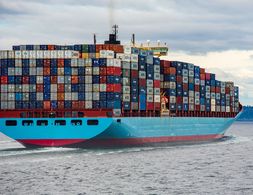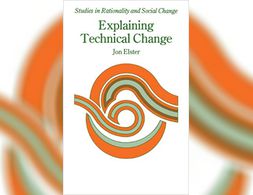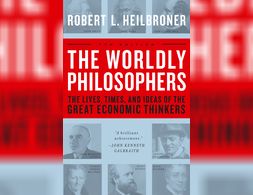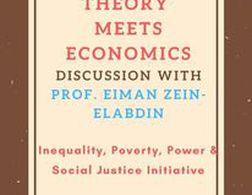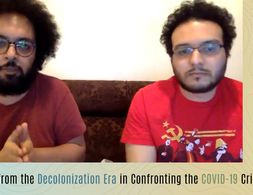✕
227 results
In the late nineteenth and early twentieth centuries, Bombay was beset by crises such as famine and plague. Yet, rather than halting the flow of capital, these crises served to secure it. In colonial Bombay, capitalists and governors, Indian and British alike, used moments of crisis to justify interventions that delimited the city as a distinct object and progressively excluded laborers and migrants from it.
One of the most authoritative authors on the intellectual heritage of John Maynard Keynes, Robert Skidelsky draws a sketch of the great man's economic thinking both accessible and insightful.
In this book, the author critically examines a number of socialist proposals that have been put forward since the end of the Cold War. It is shown that although these proposals have many merits, their inability effectively to incorporate the benefits of information technology into their models has limited their ability to solve the problem of socialist construction. The final section of the book proposes an entirely new model of socialist development, based on a "needs profile" that makes it possible to convert the needs of large numbers of people into data that can be used as a guide for resource allocation. This analysis makes it possible to rethink and carefully specify the conditions necessary for the abolition of capital and consequently the requirements for socialist revolution and, ultimately, communist society.
Macroeconomics in Context: A European Perspective lays out the principles of macroeconomics in a manner that is thorough, up to date, and relevant to students. With a clear presentation of economic theory throughout, this latest addition to the bestselling "In Context" set of textbooks is written with a specific focus on European data, institutions, and historical events, offering engaging treatment of high-interest topics, including sustainability, Brexit, the euro crisis, and rising inequality. Policy issues are presented in context (historical, institutional, social, political, and ethical), and always with reference to human well-being.
The volume, released by YSI’s Economic Development Working Group, comprises interviews with 13 scholars from around the world who express a variety of viewpoints on the meaning and relevance of dependency theory in today’s context.
Work defines who we are It determines our status and dictates how where and with whom we spend most of our time It mediates our self worth and molds our values But are we hard wired to work as hard as we do Did our Stone Age ancestors also live …
In this book, the authors, Cinzia Aruzza, Tithi Bhattcahrya, and Nancy Fraser, move away from the myopic view of feminism for a select few to focus on a universal idea of feminism.
Framing borders as an instrument of capital accumulation imperial domination and labor control Walia argues that what is often described as a migrant crisis in Western nations is the outcome for the actual crisis of capitalism conquest and climate change This book shows the displacement of workers in the global …
From Marketisation to Armed Conflict Since 1991 nominally independent Ukraine has been in turmoil with the Orange Revolution and the Maidan protests marking its most critical moments Now its borders are threatened and the civil unrest and armed conflict continue to destabilise the country In order to understand these dramatic …
Introduces four of the most influential economists you'll never read in a modern economics class - Marx, Veblen, Keynes, and Galbraith.
Exploring Economics, an open-access e-learning platform, giving you the opportunity to discover & study a variety of economic theories, topics, and methods.
This lecture acts as an introduction to the Macroeconomics course (ECON 720) at John Jay College. Throughout the lecture, the classical and Keynesian conceptions of macroeconomic relationships are contrasted.
The deceleration of world trade since 2011 has been widely discussed How much is due to a reversal of international production fragmentation And how much is due to decreasing demand for trade intensive goods The authors present a consistent framework that quantifies their relative importance A central concept in the …
Leigh Phillips and Michal Rozworski examine the apparent contradiction between the demise of real-existing socialism and the rise of large corporations engaging in planning every day, making a strong argument that these planning efforts should be transformed to now fulfil the needs of the people.
Technical change, defined as the manufacture and modification of tools, is generally thought to have played an important role in the evolution of intelligent life on earth, comparable to that of language. In this volume, first published in 1983, Jon Elster approaches the study of technical change from an epistemological perspective.
Surviving the Future is a story drawn from the fertile ground of the late David Fleming's extraordinary 'Lean Logic: A Dictionary for the Future and How to Survive It'. That hardback consists of four hundred and four interlinked dictionary entries, inviting readers to choose their own path through its radical vision. Recognizing that Lean Logic's sheer size and unusual structure can be daunting, Fleming's long-time collaborator Shaun Chamberlin has selected and edited one of these potential narratives to create Surviving the Future. The content, rare insights, and uniquely enjoyable writing style remain Fleming's, but are presented here at a more accessible paperback-length and in conventional read-it-front-to-back format
The goal of this brief report is to put in one place some of the works that have come out of the movement to reform economics education. True to their training, the student movement for pluralism in economics education has been marked by an impressive amount of research: both on economics education itself and on more topical subjects within economics.
Karl William Kapp (1910-1976) was one of the forefathers of Ecological Economics. Influenced namely by the Frankfurt School, Institutionalist Economics and Pragmatist Philosophy, he contributed to debates on the social costs of production, economic planning, sustainable development and epistemology. I
This course will expose students to some of the key debates that link digital transformations to economic, social, and political inequalities. Students will be familiarised with a variety of theoretical movements in development studies and internet studies: exploring thinking that frames the internet as a leveller that can bridge divides vs. exploring the internet as an infrastructure that amplifies existing inequalities.
Noneconomists often think that economists' approach to race is almost exclusively one of laissez-faire. Racism, Liberalism, and Economics argues that economists' ideas are more complicated.
In this teaching pack, we take a look at satellite crop monitoring and how it is used for both real and financial economic activities. By looking at commodity futures, we give students a sense of what financialization can mean. In the active exercise students learn to discuss these matters and reflect upon them.
Throughout 2022 it has become increasingly difficult for people around the world to meet their basic needs – even those who live in relative affluence in the Global North. This 30-minute classroom exercise takes this common recent experience as a starting point for an exploration of the different economic mechanisms and organisations that can be used to provide for people’s basic needs.
This brilliantly concise book is a classic introduction to Marx’s key work, Capital. In print now for over a quarter of a century, and previously translated into many languages, the new edition has been fully revised and updated, making it an ideal modern introduction to one of the most important texts in political economy.
This unique up-to-date volume not only provides state-of-the-art discussions of the most recent developments in modern macroeconomics but also includes a series of interviews with leading economists that shed new light on the major intellectual and policy issues of the 1990s. The book is at once an invaluable text and a superb overview that will be welcomed by teachers and students alike.
The bestselling classic that examines the history of economic thought from Adam Smith to Karl Marx—“all the economic lore most general readers conceivably could want to know, served up with a flourish” (The New York Times). The Worldly Philosophers not only enables us to see more deeply into our history but helps us better understand our own times. In this seventh edition, Robert L. Heilbroner provides a new theme that connects thinkers as diverse as Adam Smith and Karl Marx.
The Privatized State shows how privatization undermines the very reason political institutions exist in the first place, and advocates for a new way of administering public affairs that is more democratic and just.
The postcolonial critique of Economics is one of the sharpest and most comprehensive indictments of the discipline highlighting the discipline s limited treatment of power and culture and the incompatibility of the discipline s theoretical frameworks and predictions with the contexts of most formerly colonised territories This interview of Prof …
Post-Colonialisms Today researchers Kareem Megahed and Omar Ghannam discuss the importance of industrial policy during the pandemic to improve domestic capacity for manufacturing essential goods.
Exploring Economics, an open-access e-learning platform, giving you the opportunity to discover & study a variety of economic theories, topics, and methods.
This is an introductory level core course in macroeconomics for those expecting to take further courses in economics. It provides a theoretical and applied approach of introductory macroeconomics, with an international perspective and applications to account for the growing importance of the global economy and the rising openness of economies.
As the current economic crisis spreads around the globe questions are being asked about what king of capitalist or post-capitalist economy will follow. There is increasing talk of the need for stringent economic regulation, the need to temper greed and individualism, to make the economy work for human and social development.
Once in a while the world astonishes itself. Anxious incredulity replaces intellectual torpor and a puzzled public strains its antennae in every possible direction, desperately seeking explanations for the causes and nature of what just hit it. 2008 was such a moment. Not only did the financial system collapse, and send the real economy into a tailspin, but it also revealed the great gulf separating economics from a very real capitalism.
We use cookies on our website. Click on Accept to help us to make Exploring Economics constantly better!













